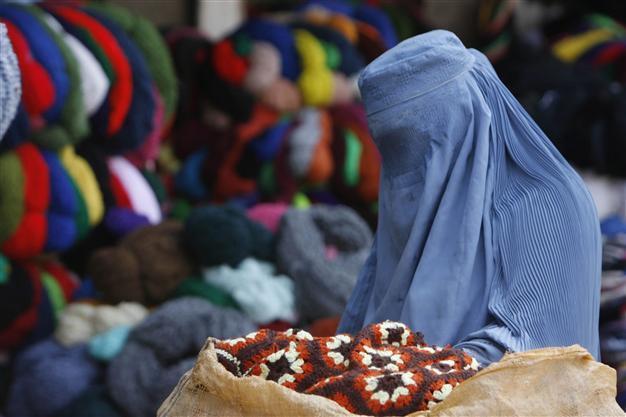UN adds to pressure on Afghan government to protect women
KABUL - Reuters

An Afghan woman sells old clothes on a roadside in Herat. EPA Photo
The United Nations joined mounting criticism of Afghan President Hamid Karzai's government on Tuesday over women's rights, urging it to enforce a law designed to prevent violence against women.The United Nations Assistance Mission in Afghanistan (UNAMA) said in a report that the country still had a long way to go in implementing the Law on Elimination of Violence against Women
(EVAW).
The legislation made child marriage, forced marriage, forced self-immolation and other violent acts including rape a criminal offence.
The 2009 law came law came after years of lobbying by Afghans and Westerners alike, and was held up as a beacon of progress.
"Progress in addressing violence against women will be limited until the law is applied more widely," Georgette Gagnon, director of UNAMA's human rights unit, told a news conference after the release of the report.
"So we are calling on the Afghan authorities to take much greater steps to both facilitate reporting of incidents of violence against women and actually open investigations and take on prosecutions."
Afghan women are increasingly concerned for their future as the deadline looms for most NATO-led combat troops to leave by the end of 2014.
They have won back basic rights in voting, education and work since the fall of the Taliban in 2001.
But some female lawmakers and rights groups say abuse against women is on the rise because Karzai's government is losing interest as it tries to advance the reconciliation process with the Taliban, an allegation it denies.
On Monday, unknown gunmen shot dead Nadia Sediqqi, acting head of the women's affairs department in eastern Laghman province, as she was going to work, in an attack widely condemned by the international community.
She had replaced Hanifa Safi, who was killed in a bomb attack five months earlier.
"We have educated women who are being locked inside houses," said teacher Masooda Jan, 35. "I wish that those women who are locked in their homes by their families and are tortured and beaten would be rescued."
Afghan women's groups had expressed concern that without international backing, it would be difficult to press for their rights, said Gagnon.
















